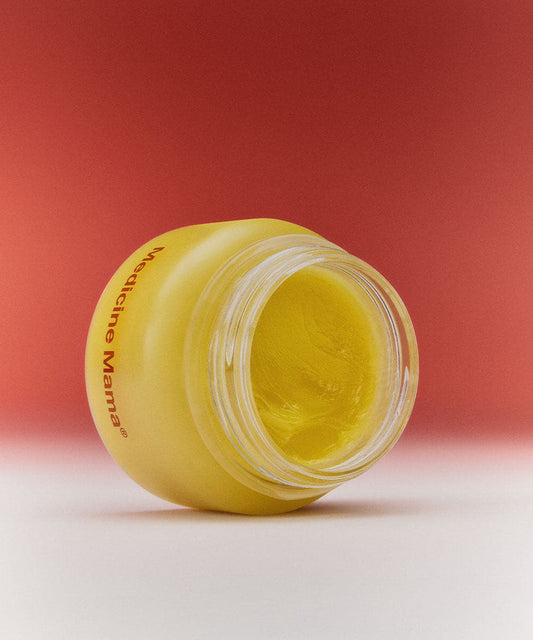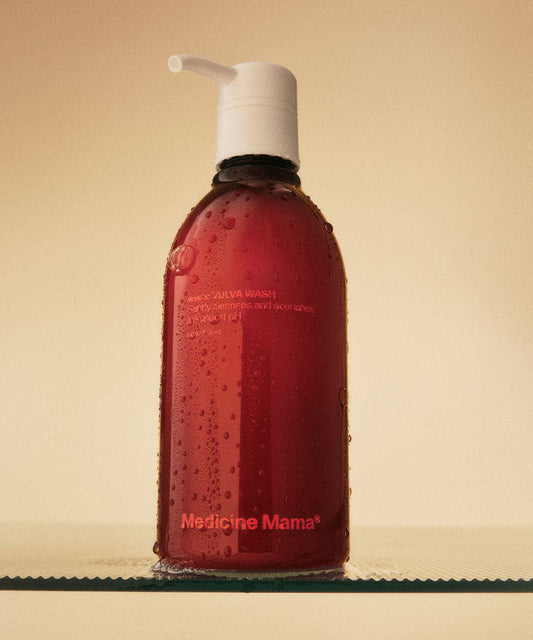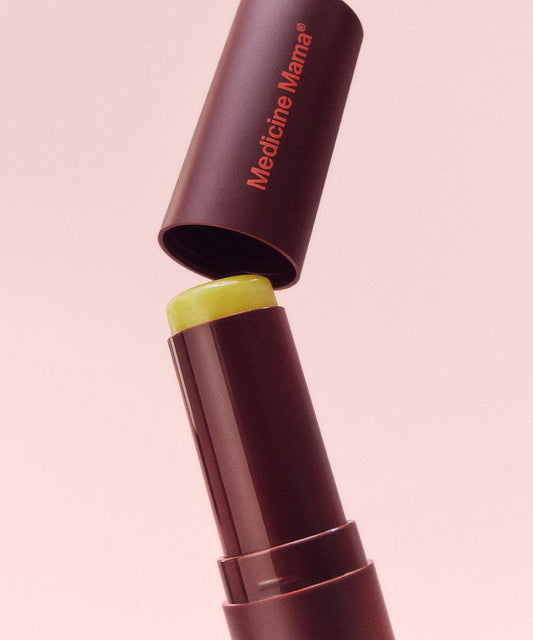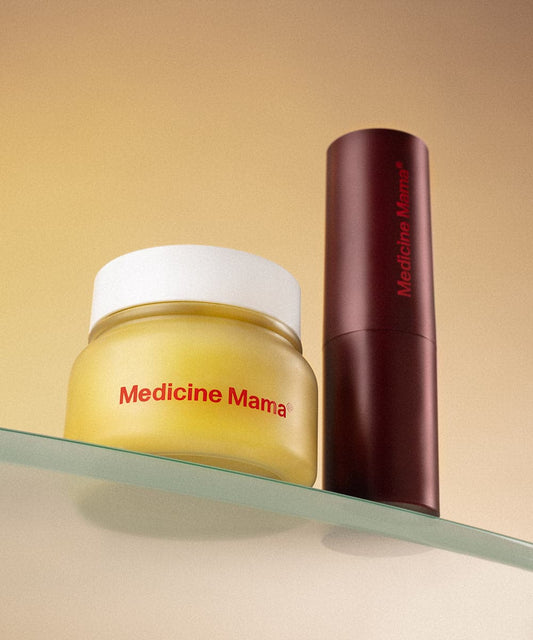Reviewed by | Dr. Clare Bertucio MD
Wondering whether coconut oil is the right choice for managing vaginal dryness? You're not alone. Many women look to natural remedies to ease this common issue, but is it safe?
In this article, we’re unpacking what vaginal dryness really involves and whether coconut oil should be part of your personal care toolkit. Our aim here at Medicine Mama? To empower you with information that puts you in charge of your body and its care.
So, if you’re ready to dive deeper into the topic, read on!
What Is Vaginal Dryness?
Vaginal dryness is a common condition often swept under the rug, but it's time we bring it into the light. It occurs when the vaginal tissues lack sufficient lubrication, which can disrupt the delicate balance of the vaginal environment. This lack of moisture isn't just uncomfortable — it can affect various aspects of a woman’s life.
Although experiences can vary from person to person, common symptoms of vaginal dryness include:
- Itching and Burning: Common and immediate signs that the vaginal area is lacking moisture.
- Discomfort During Intercourse: Insufficient lubrication can turn intimacy into a painful experience.
- Light Bleeding After Intercourse: Dry tissues can tear more easily, sometimes leading to bleeding.
- Frequent Urinary Tract Infections: A dry vaginal environment is more susceptible to infections due to compromised natural barriers.
- General Discomfort: Daily activities, including exercise, can become uncomfortable when vaginal dryness persists.
What Causes Vaginal Dryness?
Unraveling the causes of vaginal dryness helps us tackle it more effectively. It's not just an isolated annoyance; it's often a signpost pointing to broader shifts within the body.
Here are the primary triggers:
Hormonal Changes
A significant drop in estrogen levels is the leading cause of vaginal dryness, particularly during menopause. Estrogen helps maintain the health and moisture of vaginal tissue. It's not limited to menopause, though. Estrogen levels can also fall due to childbirth, breastfeeding, or certain medical treatments like chemotherapy.
Medications
Some medications can inadvertently lead to vaginal dryness. These include not only antihistamines and decongestants, which can dry out mucous membranes across the body but also hormonal treatments for conditions like cancer, which can alter estrogen levels and affect vaginal lubrication.
Sjögren's Syndrome
For some, vaginal dryness might be symptomatic of Sjögren's Syndrome. In this autoimmune condition, the body's immune system mistakenly attacks its own moisture-producing glands, including those in the vaginal walls. This can lead to chronic dryness in the vagina and other parts of the body, like the mouth and eyes.
Chemical Irritants
Everyday products, such as soaps, detergents, shampoos, douches, and even some lubricants, can contain chemicals that irritate the vaginal tissues. Regular exposure to these irritants can strip away natural oils, leading to dryness and discomfort.
Lifestyle Factors
Lifestyle choices can also influence vaginal health. Smoking reduces circulation, which can affect the health and hydration of vaginal tissues. Additionally, insufficient water intake can impact the body's overall hydration, including that of mucous membranes, thus contributing to vaginal dryness.
What Is Coconut Oil?
Coconut oil has gained popularity in the kitchen and as a staple in beauty and personal care routines. But what exactly is it?
Simply put, coconut oil is a fatty oil derived from the flesh of the coconut fruit. Known for its moisturizing properties, it's used in everything from cooking to skincare products. The oil contains a high concentration of saturated fats, which are thought to help hydrate and protect the skin by replenishing the body's natural oils.
It's available in a few different forms:
- Unrefined Coconut Oil: Also known as virgin coconut oil, this form is extracted from fresh coconut meat and processed using natural methods like cold pressing. It retains more nutrients and its natural aroma.
- Refined Coconut Oil: This type is processed further to remove impurities and the distinct coconut flavor and scent. It’s often used in cooking but is also found in beauty products where no coconut scent is desired.
- Fractionated Coconut Oil: A fraction of the whole oil where mostly medium-chain triglycerides remain. It remains liquid at lower temperatures, making it a popular choice for topical use in cosmetics and skincare.
With its creamy texture and moisturizing capabilities, coconut oil is celebrated for its ability to condition and soothe the skin, including delicate areas like the vulva.
Is Coconut Oil Safe for the Vulva?
Now that we understand coconut oil's properties, the question remains: is it safe for vulvar use? Coconut oil is gentle and hydrating, making it a favorite for dry, sensitive areas. However, while it can be beneficial, it’s not without its considerations.
First, individual reactions vary, so it’s wise to start with a small patch test on your forearm before using it more extensively. And one key caution: coconut oil can degrade latex condoms, so it’s not recommended with latex-based contraceptives.
While many find coconut oil effective and soothing, always listen to your body’s response and consult with a healthcare provider if you’re unsure.
What Are the Downsides to Using Coconut Oil for Vaginal Dryness?
While coconut oil excels at locking in moisture, this same property can seal dirt and dead skin cells into pores, potentially leading to blackheads and whiteheads. Its thick consistency can also obstruct hair follicles, leading to inflammation known as folliculitis.
Some people have more sensitive skin that won’t pair well with the comedogenic properties of coconut oil. For these people, coconut oil might induce an allergic reaction marked by itchy, red skin or hives. Always listen to your body's response and consult with a healthcare provider if you notice any adverse reactions.
Ultimately, the key lies in personalized skincare, understanding how your skin responds to different substances, and adapting your regimen accordingly.
Practical Tips To Tackle Vaginal Dryness
Vaginal dryness doesn't have to be a silent struggle. While coconut oil can be part of your regimen, it's a good idea to focus on a variety of practices for overall vaginal health.
With this in mind, let’s take a look at some practical tips to help keep your intimate areas hydrated and comfortable:
Stay Hydrated
Keep up with your water intake. Hydration benefits your entire body, including the mucous membranes of your vaginal area. Drinking plenty of water each day helps maintain natural lubrication and overall vaginal health.
Choose Natural Moisturizers
Opt for natural, gentle vulva moisturizers designed specifically for the vulva. Keep an eye out for organic ingredients that provide hydration without irritation.
Wear Soft, Breathable Fabrics
Choose underwear made from natural fibers like cotton. These materials allow your skin to breathe, reducing the risk of irritation and allowing moisture to be regulated naturally.
Avoid Irritating Soaps and Washes
Use mild, unscented vaginal soaps or washes specifically formulated to be gentle on the vulva, helping to prevent dryness and maintain pH balance without harsh chemicals.
Manage Stress
Stress can affect your body in many ways, including reducing your natural lubrication. Techniques like yoga, meditation, or even regular walks can help manage stress levels.
Eat a Balanced Diet
Incorporate foods high in phytoestrogens, such as soy and flaxseeds, which can help mimic estrogen in the body. Foods rich in omega-3 fatty acids, like salmon, are also great for skin health and moisture.
Limit Harsh Laundry Detergents
Choose hypoallergenic laundry detergents that are gentle on fabrics and your skin. Avoid fabric softeners and bleach, as these can be too harsh on sensitive areas.
Regular Exercise
Maintaining an active lifestyle helps improve blood circulation and support overall skin health, including the vulva. It also helps manage other menopausal symptoms, which might exacerbate dryness.
Prioritize Sleep
Getting enough rest is crucial for your body’s ability to repair and regenerate skin cells. Establish a calming bedtime routine to improve sleep quality and support skin health.
Consider a Humidifier
Using a humidifier in your home can add moisture to the air, which helps prevent dryness in your skin, including the vulva.
When Should You Call for Help?
Even the best home remedies have their limits, so when should you consider professional advice for vaginal dryness?
If you notice ongoing discomfort that resists your usual solutions, or if symptoms worsen — like more intense itching, increased discomfort during intimacy, or any unusual symptoms after starting a new treatment — it’s a good idea to check in with your healthcare provider. They can provide insights and treatments tailored specifically for you, ensuring your comfort and health aren’t compromised.
So, Is Coconut Oil a Safe Remedy for Vaginal Dryness?
According to Dr. Carolyn Moyers, our trusted OB-GYN partner, while coconut oil is a popular natural product, its efficacy and safety as a lubricant have yet to be thoroughly researched.
It can be applied externally as a moisturizer, providing temporary relief from itching and irritation if the outer vulva is dry or irritated. However, using coconut oil in the vagina as a lubricant or moisturizer may pose risks, especially for those seeking to prevent vaginal infections resulting from menopausal changes.
Avoid using coconut oil internally if you are prone to vaginal infections, as it can raise vaginal pH levels, disrupting the delicate balance of the vaginal microbiome and potentially leading to yeast infections or bacterial vaginosis.
It's important to note that coconut oil is not latex condom-friendly. Oil-based lubricants like coconut oil can degrade latex condoms, so consider using a polyurethane condom instead.
Here at Medicine Mama, we're all about embracing gentle, effective care approved by gynecologists and loved by users. Dive into our world of care at Medicine Mama, where your comfort is our craft. Let's keep making personal care a personal celebration.
Disclaimer: The information provided on this blog is for general informational and educational purposes only. All content, including text, images, graphics, and other material, is not intended to be a substitute for professional medical advice, diagnosis, or treatment.
Always seek the guidance of your physician or other qualified health professional with any questions you may have regarding a medical condition, treatment, or wellness program. Never disregard the advice of a medical professional or delay in seeking it because of something you have read on this website.
Sources:
Vaginal Dryness: Causes, Symptoms & Treatment | Cleveland Clinic
Coconut Oil | The Nutrition Source | Harvard T.H. Chan School of Public Health
Vaginal dryness Information | Mount Sinai
Why it’s important for you to drink water and stay hydrated | UC Davis Health



